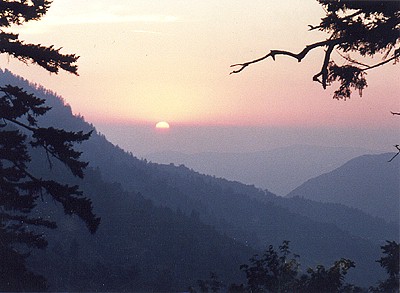All Nonfiction
- Bullying
- Books
- Academic
- Author Interviews
- Celebrity interviews
- College Articles
- College Essays
- Educator of the Year
- Heroes
- Interviews
- Memoir
- Personal Experience
- Sports
- Travel & Culture
All Opinions
- Bullying
- Current Events / Politics
- Discrimination
- Drugs / Alcohol / Smoking
- Entertainment / Celebrities
- Environment
- Love / Relationships
- Movies / Music / TV
- Pop Culture / Trends
- School / College
- Social Issues / Civics
- Spirituality / Religion
- Sports / Hobbies
All Hot Topics
- Bullying
- Community Service
- Environment
- Health
- Letters to the Editor
- Pride & Prejudice
- What Matters
- Back
Summer Guide
- Program Links
- Program Reviews
- Back
College Guide
- College Links
- College Reviews
- College Essays
- College Articles
- Back
Chasing the Dawn
In the year when the sun dropped from the sky and the world was blanketed in black, the woman looked out from her cracked, dusty window to the lifeless earth laid bare in front of her. Snow rose in great heaps around the small cottage, which burned like a dying candle against the gray backdrop of the sleeping world. Months of darkness had dulled her mind, but as she looked around at her sleeping, emaciated children, she knew it was time to leave.
They left the barren farm early on a Sunday morning as church hymns rose over the darkened hills in a hopeless requiem. Nothing was left in the fields but a few withered plants struggling to rise above the icy sheets of winter, seeking light and warmth that would not come. The woman took her children by the hand and they walked without respite across the winding roads of the countryside, surrounded by a perpetual dusk. They came to a great walled city where darkness permeated the solid stone blocks and leeched into the minds of the residents. Looming black chimneys belched ominous smoke and ash that settled heavily over the industrial buildings and narrow allies, and as night fell a subdued stream of defeated workers shuffled with heavy treads to the crowded tenements, where there was no escape from the eternal cries of children craving light and nourishment that pervaded their parents’ minds and echoed in their fitful dreamless sleep.
The woman stopped in front of the iron gates that swung outwards with a foreboding creaking, and tendrils of floating smoke carried by the wind beckoned her inside. The shadowy fingers snatched at the loose clothing hanging off her skeletal body and pulled her and the children towards the entrance to the city as the gates began to grate shut, and the woman understood that if they entered, her family would be trapped in iron cage where the doors would never again open to the world of opportunities outside. She turned, fighting the spectral wind, and returned to the road with her children as the towering iron doors slammed shut behind them.
It was a year later, the children taller and the woman’s face etched with lines, when finally a faint glow began to appear in the eastern sky. The eyes of the family, deadened by months of hardship, took up the reflection of the light that pointed them to the south and the coast. Great white cliffs rose in a sheer drop to the foaming sea below, churning in and out the deep colors of the tide. A winding goat path, packed with travelers streaming to the port city at the base, dropped to a beach of fluorescent sand that beat against the fading darkness and illuminated the harbor with a surreal and alien light. The woman, holding her children, precariously picked her way down the path and arrived at the port town as the clock was striking six, a meaningless tone in a world without the constant and marked rise and fall of the sun. She dug her last remaining silver coins from deep within her bag and pressed the specie imploringly into the hands of a captain heading east towards the withheld dawn. He refused at first, shaking his head in refusal at the meager sum she was plying upon his tight, closed fists, but a spark of pity ignited in his heart when he saw the pale and drawn faces of the children, and he relented.
The next morning he ushered them on board a small wooden skiff and they left the harbor glowing in the distance behind them. For many days of endless night they traversed the open sea towards the distant sunrise. The water was phosphorescent with a myriad of dramatic colors as the captain deftly steered the ship through the fathomless depths, between treacherous swirling eddies and the swelling crests and troughs of waves. After uncountable hours, dark shapes slowly came into focus on the horizon. The woman stood at the prow of the skiff, a lonely, spectral figurehead in the shadows, and at first mistook the towering silhouettes, rimmed with a dim glow, to be the pastel clouds of the incipient sunrise she had been chasing. As the boat cut through the silent waters, the approaching shapes were thrown into sharp relief. The woman recognized them to be mountains like those of the old world. And as she let out a cry of discovery, alerting her children and the captain sleeping below decks, the sun edged over the top of the peaks, spreading warm fingers of light over the land and turning the sea and mountains of the new world to pure gold.

Similar Articles
JOIN THE DISCUSSION
This article has 1 comment.

My sophomore year English teacher asked my class to write a piece in the style of Gabriel García Márquez. I decided to write an allegory about immigration to America from Ireland (based on the story of my great-grandmother) while using the style of magical realism.